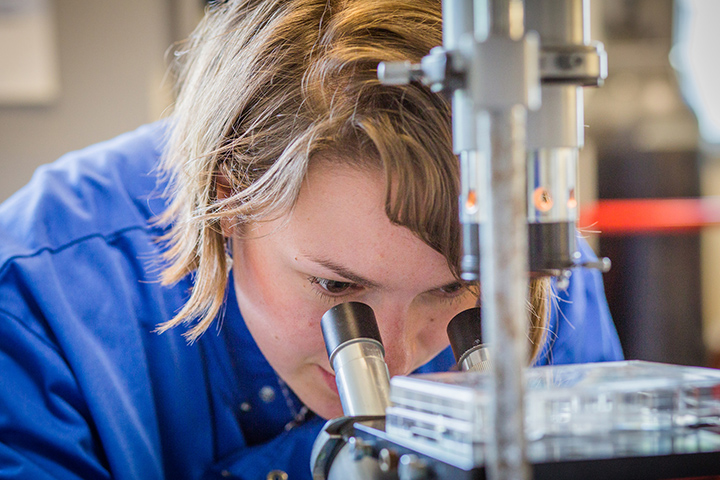Professional registration for Technicians
We recognise that the work that technicians do is very diverse and that they may have had very different career paths before becoming a technician.
Professional Registration is a way for technicians to be recognised for their skills outside of the University and as part of the wider technical community, regardless of the route they have taken in becoming a technician. As part of the University’s Technician Commitment, the University of Bradford aims to encourage and support technicians who want to become professionally registered.
What is Professional Registration?
Professional Registration is awarded by professional bodies and recognises knowledge, competence and commitment to high standards of professionalism. Professional Registration is different to academic qualifications, as it aims to help staff continue with their professional development and captures the skills learnt within a role, as well as any formal qualifications.
For many professions, there is a professional body that sets out and upholds the standards expected of someone working within that area of expertise and which provides members with support. Staff can register to show that they are working to that high standard.
For technicians who work in science, engineering or related disciplines, there are a number of professional bodies who offer professional registration, including The Science Council, the Institution of Science and Technology and the Engineering Council. Outside of science and engineering, there are a wide range of other professional bodies which focus on specific disciplines, industry sectors, or type of employee.
Technicians may also find it useful to review the Science Council’s guidance on which professional membership may be right for them: https://sciencecouncil.org/scientists-science-technicians/which-professional-membership-body-is-right-for-me/
What does Professional Registration involve?
To become professionally registered technicians must apply through the relevant website and should meet the following criteria:
- Demonstrate that they meet the required set of competencies and standards set out by the relevant professional body;
- Meet the requirements for membership of a licensed Professional Body;
- Pay the required membership fee;
- Sign up to the Code of Conduct for the chosen Professional Body;
- Engage in continuing professional development (CPD) to maintain or advance their skills and knowledge.

Continuing Professional Development (CPD)
Continuing Professional Development (CPD) refers to the ongoing tracking and documentation of skills, knowledge and experience that are gained during the course of the colleague’s day-to-day role after any initial training has been completed. CPD records should demonstrate any learning or experience and how this has been applied.
